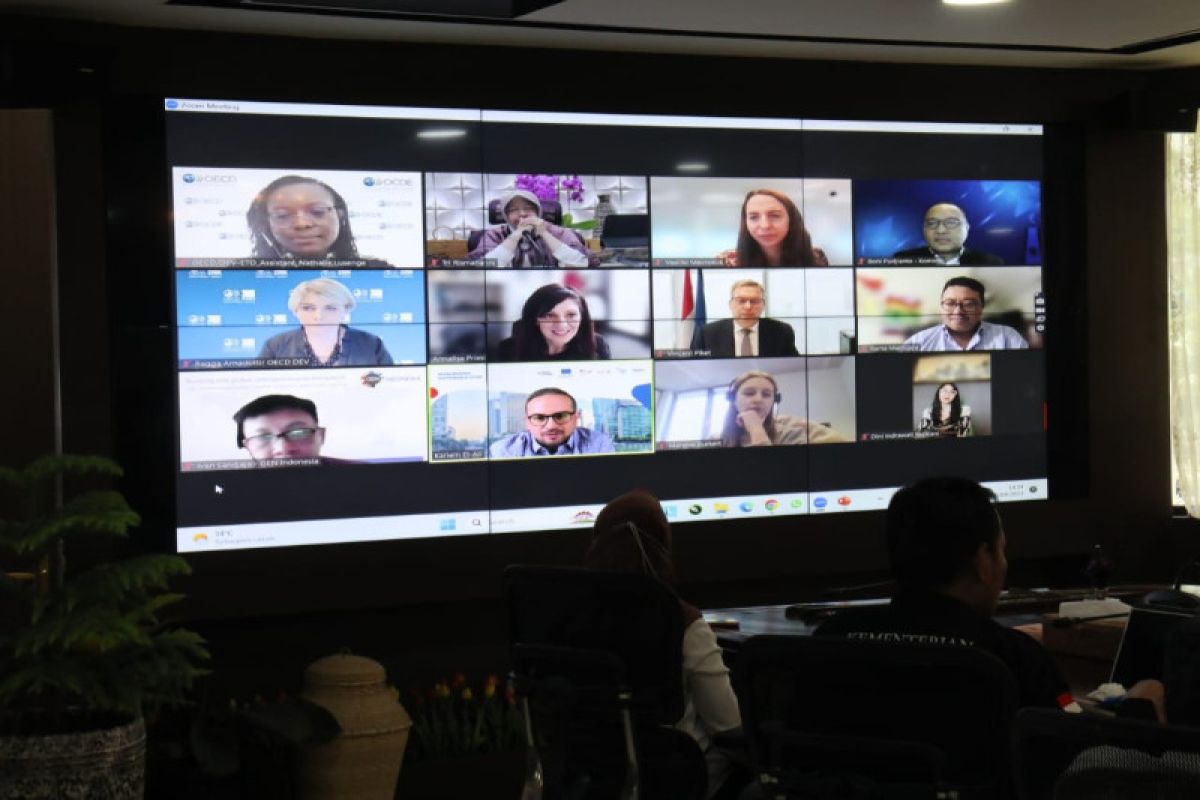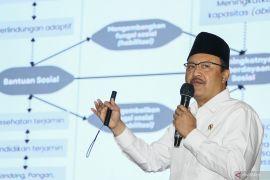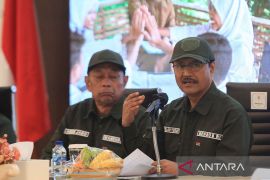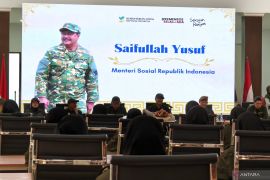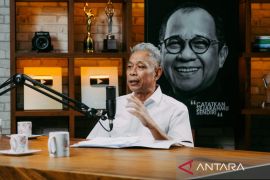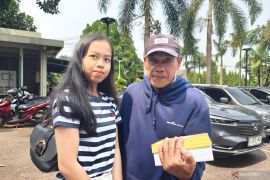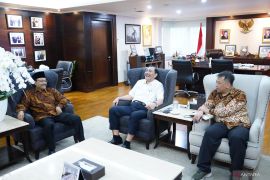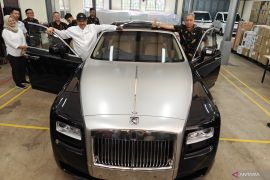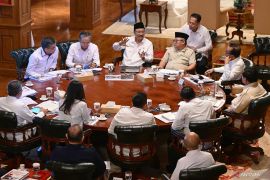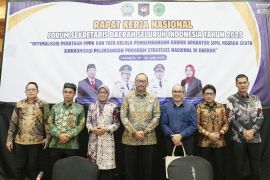Rismaharini cited the example of the PENA idea being emulated from the Surabaya Economic Program in 2010 that had succeeded in reducing the poverty rate in Surabaya City when she was the mayor.
"This approach (economic empowerment) was replicated and modified for a national program called the PENA program," the social affairs minister noted in a written statement received in Jakarta, Friday (Apr 7).
At the High-Level Roundtable Forum "Start-up Asia: Chasing the Innovation Frontier - The Case of Indonesia" held by the OECD Development Center and the European Union online in Jakarta, Wednesday (Apr 5), the minister explained that PENA provides training and assistance to build the capacity of beneficiaries in creating sustainable start-ups' entrepreneurship.
"When I started, the poverty rate in Surabaya reached 14 percent, and a step was taken toward (achieving) a milestone. Reaching only 86 women from suburban areas in Surabaya, we started the Surabaya Economic Heroes (PE) in 2010," she explained.
During that decade-long journey, participants grew, from 86 to 12,382 in 2020. Some members of the group went on to master skills and achieve new heights as millionaires and billionaires.
Thus, the poverty rate dropped dramatically to five percent.
Similar to PE, the PENA Program was then replicated and modified by the Ministry of Social Affairs during her leadership era.
PENA, as an entrepreneurship program, targets the poor and vulnerable groups that are beneficiaries of social assistance programs -- Family Hope Program and Basic Food Program -- by providing training and assistance to grow sustainable businesses. The difference is that it is added capital assistance that is adjusted to the business plan or the business of beneficiaries.
"Last year, we started with 5,209 families and plan to expand further to 7,500 families this year," the minister remarked.
PENA beneficiaries are selected through a series of selection processes with certain criteria, such as the productive age group and having a start-up business. The business idea plan is then submitted until it is processed for selection. If accepted, the recipients will get the full benefits of PENA, including capital and business consulting.
"All PENA beneficiaries are given access to weekly sessions with mentors, who assist them in product development, digital marketing, and financial management," she remarked.
Related news: Ministry strengthens PENA program for poverty eradication
Moreover, the Ministry of Social Affairs encourages inclusive economic empowerment by targeting the PENA programs for people with disabilities.
"If people with disabilities, homeless people, beggars, and other street groups can do it, anyone can do it. I believe everyone can live a better life and get out of poverty," she affirmed.
Since 2016, Indonesia has supported start-up development through several programs, i.e., incubation support and mentoring to grow innovations, with the aim of inclusive and sustainable development.
In this case, Director of OECD Development Center Ragnheiður Elín Árnadóttir said that the OECD places Indonesia as a top priority on the development agenda.
"We realized after seeing the (Indonesian government's) innovation explanation that forming entrepreneurship is the key to increasing economic growth," she remarked.
Minister of Tourism and Creative Economy Sandiaga Uno, who was concurrently present at the forum, stated that the role of the Indonesian Government, Ministry of Social Affairs, Ministry of Tourism and Creative Economy, and Ministry of Communication and Information Technology in developing start-ups not only generated economic impacts but also provided additional social and environmental benefits.
"The government is very concerned about the start-up programs, such as inviting, training, and promoting domestically and abroad," Uno remarked.
Meanwhile, European Union Ambassador for Indonesia Vincent Piket stated that examples of start-up conditions in Indonesia showed rapid growth. At the same time, the government has opened opportunities to increase the income of the poor by providing access to technology and various services.
"A good growth agenda in Indonesia to help accelerate economic growth, as Mr. Sandiaga Uno said, and thanks to the Minister of Social Affairs Tri Rismaharini, who has continued to support entrepreneurship for vulnerable and disabled groups. This can certainly be used as an example for other countries in making micro business units and new start-ups for poor communities to become empowered and independent," he remarked.
Head of Development and Economic Transformation of the OECD Annalisa Primi also highly lauded the work done by Minister Rismaharini throughout this time.
"Thank you to Social Minister Risma for the real efforts to form micro-inclusive entrepreneurship to help the poor to become prosperous. Good practices that can be emulated by other stakeholders," Annalisa stated.
The event was also attended by the Ministry of Communication and Informatics and representatives of both national and international organizations and institutions as well as representatives of other Indonesian start-ups.
The OECD is an international organization comprising 38 developed countries based in Paris, France, whose mission is to form policies that promote prosperity, equality, opportunity, and prosperity for all. The OECD partners with several countries, one of which is Indonesia. The roundtable session discussed economic transformation in Asia that narrowed down the picture of start-ups in Asia.
Related news: Indonesia pushes optimizing blue economy as ASEAN's new growth driver
Related news: Mulyani meets OECD secretary-general on sidelines of G20 agenda
Translator: Devi Nindy Sari, Cindy Frishanti Octavia
Editor: Yuni Arisandy Sinaga
Copyright © ANTARA 2023
